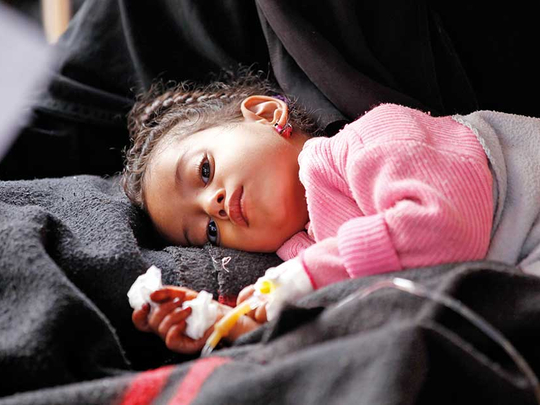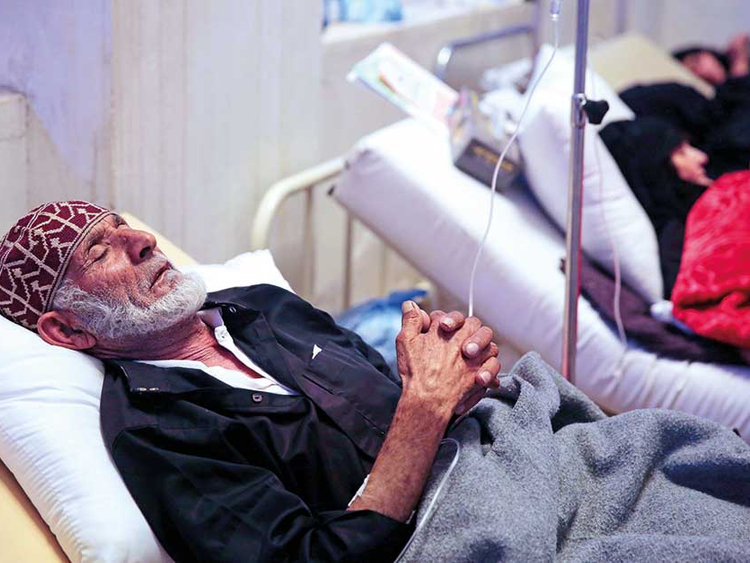
Dubai/Cairo: Spilling into the hallways of crowded Yemeni hospitals, children writhe in pain from cholera. Displaced villagers roam baking hot plains and barren mountains to evade warring militias.
The escalating outbreak of disease and displacement of tens of thousands by recent fighting has inflamed one of the world’s worst humanitarian crises, pushing Yemen’s war-pummelled society ever nearer to collapse.
Cholera — a diarrheal disease spread by food or water tainted with human faeces — has killed 180 people in less than three weeks, according to the Geneva-based International Committee of the Red Cross (ICRC).
Samira Ali, a worried mother, expressed shock at the scene at Sabaeen Hospital in Sana’a, the ancient capital in the north held by the armed Al Houthi movement since late 2015.
“My young son suddenly started suffering from severe diarrhoea. We went to the hospital and found it full, we couldn’t find a place,” said Ali, a teacher.
“Only with difficulty were the doctors able to give him the medicines which saved his life. This situation is tragic.” The United Nations now estimates that in Yemen a child under the age of five dies every 10 minutes from preventable causes, two million people have fled fighting near their homes and only half of hospitals have staff and supplies to function normally.
Already one of the poorest countries in the Middle East, Yemen was engulfed in 2015 by civil war pitting the Iran-backed Al Houthis against the internationally recognised government of President Abd-Rabbo Mansour Hadi.
More than ever before in the war, state institutions are losing their ability to withstand the spread of pestilence and the mounting death toll.
A battle for control of the central bank has left salaries in Houthi-held lands in and around Sana’a largely unpaid for six months, ruining the lives of hospital and sanitation workers.
Pumps to sanitise the water supply sit idle for lack of fuel, while maintenance agencies tasked with chlorinating aquifers go without salaries and supplies.
Doctors treating the cholera outbreak fare little better.
“The health system has been hanging by a thread,” Unicef’s spokesman in Yemen, Rajat Madhok, said.
“Wages haven’t come in, humanitarian workers and doctors are trying their best but some leave their work to seek jobs where they can get paid. Declining value of the currency hurts and all this has a cascading effect that is badly hurting the sector.”













